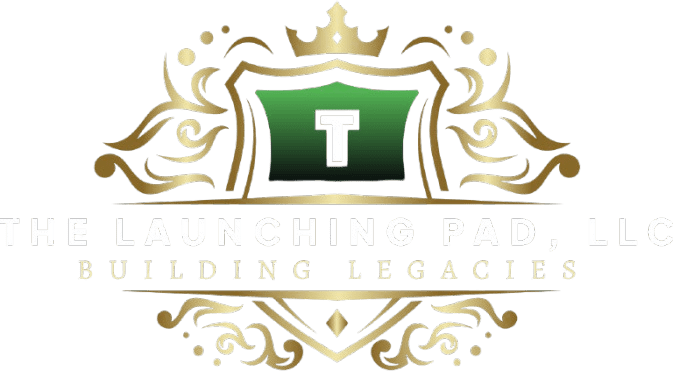Why You Need Asset Protection In Your Financial Plan
Posted on July 10th, 2024
Picture yourself having worked decades to build a comfortable nest egg, meticulously saving through your 401(k), investing prudently in mutual funds, and perhaps even owning a small business that you’ve dedicated countless hours to nurturing.
Now, take a moment to imagine what it would feel like to have all of that hard-earned wealth suddenly jeopardized by an unexpected lawsuit or a costly accident. It's not the most pleasant imagery, but it paints a stark picture of the potential vulnerabilities most of us rarely consider when planning our financial futures.
That's where the concept of asset protection comes into play—a strategic layer of defense that stands between your accumulated wealth and potential hazards that life can sometimes throw your way.
When constructing a holistic financial plan, many people naturally gravitate toward investments, savings, and retirement planning, which are indeed crucial components. However, it’s equally essential to fortify these accumulated assets against potential threats to ensure their longevity and stability.
This approach differs significantly from traditional financial strategies by focusing on creating barriers that protect your wealth. Whether you run a small business in downtown Philadelphia or have accumulated substantial savings for your family, understanding and implementing asset protection measures can make the crucial difference between maintaining financial stability and facing unforeseen losses.
With each step you take towards securing your assets, you’re not merely safeguarding your wealth; you’re setting the foundation for lasting peace of mind.
Incorporating asset protection into your financial plan doesn't imply hiding wealth or evading responsibilities. Instead, it’s about smartly restructuring ownership and leveraging legal entities that effectively minimize exposure to risks.
Similarly, setting up irrevocable trusts places certain assets beyond the reach of personal liabilities, providing an extra layer of security. These mechanisms might seem complex at first glance, but they are designed to legally and ethically diminish your financial vulnerability.
By systematically integrating these protective measures, you ensure that your financial achievements remain intact, regardless of what lies ahead.
What Is Asset Protection Planning
What is asset protection planning at its core?
It's simply the process of determining how to arrange your financial and legal affairs to guard your wealth against risks such as lawsuits, creditors, or unforeseen life events. Think of it as putting a shield around your hard-earned assets. While financial planning often focuses on growing and managing wealth, asset protection aims to safeguard what you have accumulated.
This safeguarding is a crucial part of financial stability because it ensures that your assets remain intact even when challenges arise. By implementing these strategies, you don’t just rely on luck hoping that your wealth remains safe—you actively take steps to protect it.
When we talk about financial planning, many think about investments, retirement accounts, or savings plans. However, wealth safeguarding through asset protection planning introduces a layer of security that is vital. For instance, if you own a business, you could be exposing your personal assets to risks associated with your business operations.
Different from investment strategies which aim at growing your wealth, asset protection focuses on placing your assets in legal structures, such as trusts or limited liability companies (LLCs), that create barriers between your assets and potential claimants. This doesn’t mean you’re hiding assets—it's about restructuring ownership to minimize exposure to risk. For example, setting up an LLC can protect your personal assets if your business faces legal action.
Consider the importance of asset protection with a real-world example. Imagine you have a considerable amount of savings and investments, and you’re involved in an unfortunate car accident. Without effective asset protection planning, should there be a lawsuit against you, your personal savings could be at risk. Certain assets can be safeguarded legally. This is especially pertinent for middle-aged families who have worked decades to build their nest eggs. Owning property and having significant financial assets without protection is like leaving your front door open—there's a high possibility someone or something might cause harm.
By incorporating smart asset protection strategies into your financial plan, you add robust layers of security. Ultimately, this ensures peace of mind, knowing you’ve done everything possible to protect your wealth from unexpected challenges.
The Essential Components of an Asset Protection Plan
So, what should be included in a financial plan to protect assets?
First and foremost, insurance is a crucial component. This includes health insurance, auto insurance, home insurance, and especially liability insurance. Proper insurance coverage acts as a financial buffer against various risks. For instance, umbrella insurance provides an extra layer of protection if your standard liability limits are exhausted. Beyond insurance, legal entities like LLCs play an essential role.
Forming an LLC separates your business assets from your personal assets, which means that if your business incurs debts or faces lawsuits, your personal finances are shielded. Similarly, setting up family limited partnerships can help segregate business assets and can even offer tax benefits.
Evidently, trusts are another strategic element in asset protection. There are various types of trusts, each serving different purposes. For instance, an irrevocable trust can be used to protect assets from creditors and lawsuits. Once assets are placed in an irrevocable trust, they are no longer owned by you, hence cannot be seized to satisfy personal liabilities.
Another beneficial structure is a living trust which can help bypass probate, ensuring that your assets are smoothly transferred to heirs without much legal hassle.
On the retirement front, don’t underestimate the significance of retirement accounts like 401(k)s and IRAs. These accounts often come with creditor protection clauses, adding another vital layer to your asset protection strategy. By utilizing these types of accounts, you can not only prepare for your retirement but also shield assets from potential claimants.
Finally, the role of financial advisors cannot be overstated. Working with skilled financial advisors allows you to tailor these asset protection strategies to your unique circumstances. Advisors possess the expertise to navigate complex legal and financial landscapes, offering customized recommendations that align with your goals. They help you assemble a robust financial planning strategy that incorporates different asset protection layers — from legal structures to insurance policies and retirement plans.
Regularly reviewing and updating your asset protection plan is also critical, considering life events and changes in laws can impact your financial stance. In this way, engaging with a professional doesn’t just add value; it ensures that your wealth is as secure as it can be. So, as you continue to grow your wealth, remember the importance of taking comprehensive, strategic steps to guard it. Your future self and family will undoubtedly thank you for it.
How Asset Protection Works and Why It’s Worth It
Now, let's discuss the actual mechanics of how asset protection works. At its core, it involves restructuring property ownership and implementing legal entities to create barriers that safeguard your wealth.
For instance, by establishing a limited liability company (LLC), you effectively separate your personal assets from your business liabilities. Should your business encounter legal trouble or creditor claims, your personal finances remain untouched due to this legal firewall.
Also imperative is the creation of trusts, particularly irrevocable trusts, where assets you place within are no longer deemed as part of your personal estate, hence out of creditors’ reach. These mechanisms do not equate to hiding assets, but rather, they involve strategic legal steps to ensure you're compliant with laws while minimizing exposure to potential claims.
Addressing common risks, consider scenarios involving creditor claims, lawsuits from clients or employees, and even disputes within the family that could involve unwanted beneficiaries. Imagine you’re operating a small business and a customer sues you. Without adequate protection like an LLC, your personal wealth, including your home and retirement savings, could be on the line.
Is asset protection worth it? Absolutely.
It acts as a shield against such financial upheavals, giving you peace of mind and ensuring that your years of labor don’t go in vain.
Think about it, if you were to face an unexpected health crisis or accident leading to substantial medical bills that exceed your insurance coverage—having your assets protected through legal structures ensures that your financial stability isn't toppled under stress. It's these practical layers of security that emphasize why asset protection is important for any robust financial plan.
Practical asset protection tips include maintaining proper insurance coverage and engaging in regular reviews of your financial standing.
Always ensure your insurance policies—including liability and umbrella insurance—are up-to-date and reflect your current assets and risks.
Consider working with a seasoned financial advisor to explore setting up various legal entities centered around your unique circumstances. For instance, a physician might benefit substantially from an irrevocable trust to protect personal assets from malpractice suits.
Meanwhile, a small business owner might prioritize forming LLCs for different ventures to compartmentalize risks. This method fortifies your wealth against diverse threats while simplifying future legal and tax obligations.
Moreover, personal diligence is key. Continuously educate yourself on changing laws and the evolution of financial products geared toward asset protection, which can offer innovative solutions tailored to your needs. By embracing proactive asset protection measures, you secure not just your current financial health but create a legacy of security and prosperity for future generations.
So, don’t hesitate—act now and reach out to us to learn about our assets protection services and how we can help you design a robust, customized protection strategy.
By integrating asset protection into your financial plan, you are proactively managing risk and safeguarding your future. This commitment ultimately frees you to focus on what truly matters—enjoying your life and providing for your family's needs without the constant worry of financial vulnerability.
Our expert team does more than offer advice; we provide actionable solutions designed to fortify your financial stability. It's about making informed decisions today to protect your tomorrow.
To Conclude
We are here to ensure that your financial plan is as robust and comprehensive as possible. Our Assets Protection services encompass a range of strategies tailored specifically for you.
Reach out to discover how we can help you live more securely, with confidence in the protection of your assets.
Contact us today or call (267) 496-8822 to start building a future where your hard-earned wealth is safeguarded against life's uncertainties.
Let us help you put up those critical shields and layers of protection so you can thrive financially, knowing your assets are secure.
